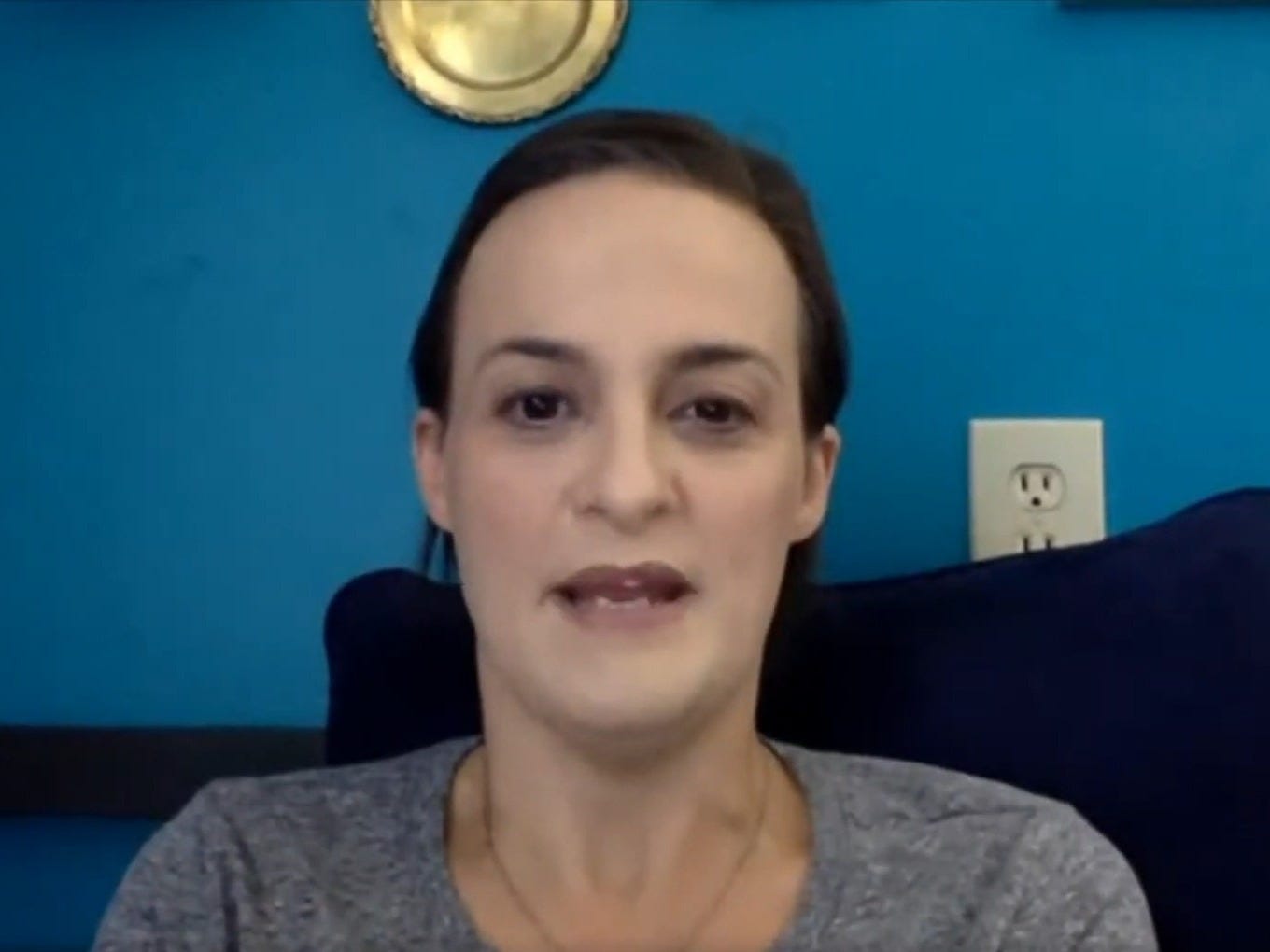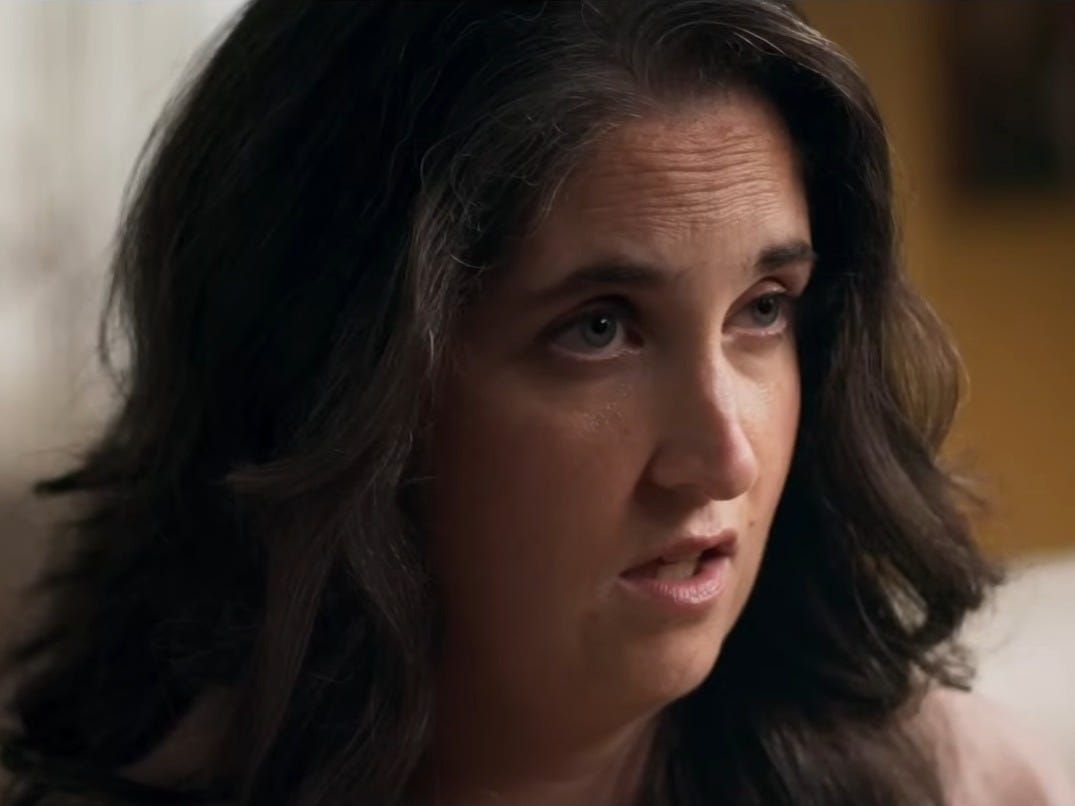To learn the extent of Elisabeth Finch’s lies, watch Anatomy of Lies, streaming now on Peacock. Her lies directly impacted an abused woman and her children, along with many other people who actually met and worked alongside her.
I’m just a disappointed fan who wanted to write it out.
There was a time in my life when I could identify Grey’s Anatomy episodes by the writer as faithfully as a diehard boyband fan knew her favorite man’s voice as soon as he started singing (No, we can’t be friends if you can’t tell the Backstreet Boys apart). Grey’s meant a lot to me, and I took the mistreatment of my favorite characters, storylines, and bad writing personally. I knew which writers purposefully misunderstood my faves and which ones loved them.
It’s hard to explain how I’d know a Bill Harper teleplay from an Andy Reaser one even if their names didn’t roll across the screen in the first act of a Grey’s Anatomy episode—but I did.
During season 13, a new name caught my attention — Elisabeth Finch.
That’s when she became the primary writer for storylines about my favorite couple on the show — Jackson Avery (Jesse Williams) and April Kepner (Sarah Drew). Her scripts were full of rich detail and depth that only a few writers on the staff achieved at the time, in my opinion.
Those storylines and characters comforted me through difficult periods of my life, and I appreciated writers who appeared to understand the characters and the depth of the actors’ talent.
She also wrote episodes that would become part of Grey’s Anatomy history like “Silent All These Years,” which addressed the subject of domestic violence. The episode won awards, got a lot of positive press attention, and impacted many lives. When I watched the episode a few years after it first aired, I thought it was a powerful example of why some episodes of television become a part of history.
As a writer and entertainment reporter, I respected her talent beyond measure.
Then she left the show in the most dramatic fashion possible — after allegations came out that she lied about cancer, her brother’s suicide (he’s alive), and participating in cleanup at the site of a terrorist attack, among many other strange stories.
In the Peacock docuseries Anatomy of Lies, former Grey’s writer Kiley Donovan said that after she shared with Finch that she was a product of her mother’s rape, Finch used her real, sensitive personal history as backstory for the character of Jo Wilson (Camilla Luddington) without Donovan’s permission.
Finch met her ex-wife Jennifer Beyer in a facility where they were both being treated for mental illness and preyed on her and her five children as they dealt with an abusive family member (and his eventual death by suicide).
I couldn’t possibly tell the whole story if I wanted to; it’s based on reports by Vanity Fair and The Ankler. Finch’s behavior is also potentially consistent with a mental illness that I will not name because I’m not a doctor.
Grey’s has always meant a lot to me and Drew’s work in particular has had a profound impact on my life. I was saddened to learn of Finch’s behavior and work hard to minimize any bitter taste in my mouth when I watched episodes she’s written.
It’s hard to rewatch her episodes knowing that some of what I admired was based on manipulation, not truth.
I’ve never had cancer, but I’ve lost loved ones to it and know how cruel it can be.
It’s equally cruel to family members of cancer patients to fake the disease. To keep up that scam, someone also has to take advantage of caring people with big hearts, stealing their time, resources, and money and emotionally manipulating them.
Beyond the personal disappointment, I couldn’t help but consider what Finch’s actions meant for the disability community, especially those in Hollywood writers’ rooms.
Finch’s lies could potentially impact the disability community
The closest I came to talking to Finch was around 2022 when I reached out for comment on a story I was writing, but Grey’s Anatomy representatives said she wasn’t available. This happens in entertainment journalism and while I was disappointed, there was no reason to be alarmed. A few months later, the scandal broke.
While watching Anatomy of Lies recently, I began to wonder what would’ve happened if I did get to chat with Finch. I admire her talent and try to stay in touch with people I admire in the entertainment business. That’s the way opportunity comes, especially for someone like me.
In another universe, maybe I would’ve been swept up in her lies as well. But that didn’t happen.
Since cancer is sometimes classified as a disability, Finch’s behavior also made me reflect on what it means for disabled writers trying to succeed in Hollywood, where we’re already vastly underrepresented and often have to work twice as hard to gain respect, let alone accommodations.
Hearing former Grey’s writers explain the allowances and care they gave to Finch, because they believed she had cancer and trauma, made me angry. The staff appeared to be great with accommodations, which is wonderful. From a general disability perspective, we only want accommodations so that we have equity in the workplace and can do the best job possible.
Even a disabled person who knowingly exploits their right to accommodations in the workplace hurts the community.
That’s without even getting into the rage I feel at the idea of someone faking cancer or any disability.
There aren’t enough adequate words in the English language to describe how hard disabled people have to work to succeed in their careers.
As someone who aspires to be in a writers’ room at some point in my life—even though she’s been treated for mental illness in the past—the possibility that Finch’s behavior has made it harder for someone like me to achieve my goals hurts my heart.
To be clear, Finch’s work on the show didn’t directly impact my life as much as Drew and Williams’ work — but I’ve never been in a situation where art I love so much was potentially based on lies and manipulation.
Even if there are no lies in scripts that are beloved to me, Finch’s whole portfolio of work (including lies published in women’s magazine articles), is tarnished and that’s maddening to me as someone who values truth and authenticity above many other virtues.
This essay is impossible to conclude because I’m left with more questions than answers about how to love art when an artist has betrayed many people. I’m also left wondering how Finch’s behavior will impact those of us who want to bring authenticity to disability stories in Hollywood.
It certainly won’t make the road any easier, but her victims are healing and that’s what matters.






